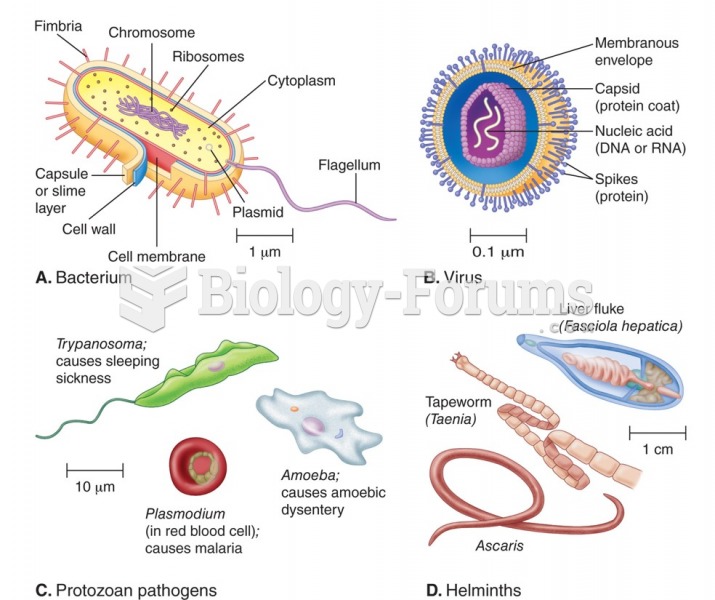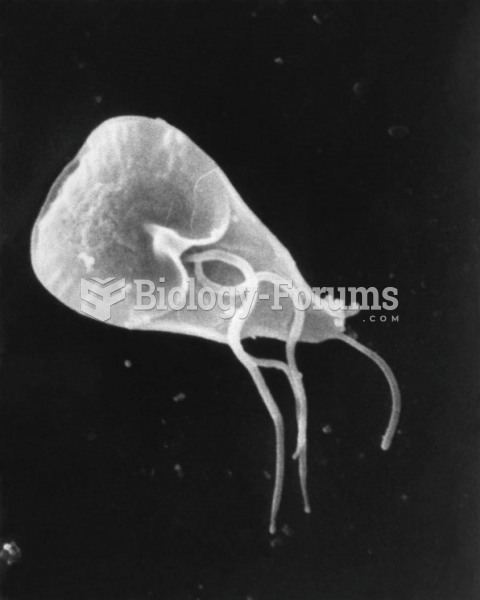This topic contains a solution. Click here to go to the answer
|
|
|
Did you know?
Nitroglycerin is used to alleviate various heart-related conditions, and it is also the chief component of dynamite (but mixed in a solid clay base to stabilize it).
Did you know?
Asthma cases in Americans are about 75% higher today than they were in 1980.
Did you know?
To combat osteoporosis, changes in lifestyle and diet are recommended. At-risk patients should include 1,200 to 1,500 mg of calcium daily either via dietary means or with supplements.
Did you know?
Aspirin is the most widely used drug in the world. It has even been recognized as such by the Guinness Book of World Records.
Did you know?
In 1864, the first barbiturate (barbituric acid) was synthesized.
 Water striders serve as a model organism for the study of sexual conflict between males and females.
Water striders serve as a model organism for the study of sexual conflict between males and females.
 Pneumonia. This common lung inflammation may be caused by bacteria, viruses, or fungi and is often d
Pneumonia. This common lung inflammation may be caused by bacteria, viruses, or fungi and is often d





